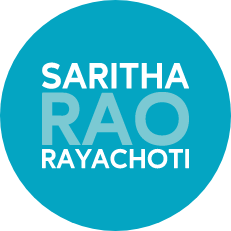Irani Cafes are considered a haven for many a struggling writer in Mumbai. It’s not uncommon to find a play produced in Mumbai, set in one. Or perhaps a short story where all the action happens in an Irani Café. Many a Bollywood script set in Mumbai is incomplete without the hero and his friends trying to wangle a free meal from the stereotypical Iranian proprietor of a café.
An Irani Café is characterized by tall ceilings, mirrored columns, checked tablecloths, bent-wood chairs, and the usual Irani Café fare – tea, snacks, biscuits and dessert. The Irani tea is a milky, sweet well-spiced cuppa with a mint-flavoured variation. ‘Bun maska’ is buttered bun that is dipped in the tea and eaten. Kheema Pav (mince with bun) is another favourite of the regulars, as is the Mawa Cake (cake with a hint of nutmeg). Akoori is scrambled eggs made using liberal measures of spice, onions and coriander leaves. There are also the usual omelettes, sandwiches and almost always, exceptionally good dessert.
For most people who’ve lived many decades in Mumbai, a trip to an Irani Café is more habit than occasional visit. A friend reminisced about accompanying her father to an Irani café every Sunday for breakfast. An interesting piece of trivia she shared about Irani cafes is that they were usually located in the corner of a building, at the junction of two roads – a location not considered auspicious by shop keepers of other communities. The Iranians had no such beliefs and probably saw the location as profitable for the same reason – twice the amount of business at a junction.
However, Irani Cafes are a dying cultural entity in Mumbai today. Some, like Bastani’s have closed down due to differences that arose among the partners. When the old proprietors of some Cafes passed away, their children were reluctant to take on the mantle of running the place when better job prospects in corporate India and abroad beckoned. Some Cafes have become beer-bars. Others have become upscale restaurants.
An Irani Café like Kyani’s at the Metro Cinema junction has survived almost unchanged in over hundred years of being in business, with prices as low as Rs. 10 for a tea and mawa cake. The proprietor Aflatoon K. Irani had applied for and got a liquor-serving permit, but never actually collected it as he realized that the place would no longer be a draw for families. So, students drop by to get an inexpensive sandwich, elderly uncle-types sit by themselves reading the paper occasionally taking noisy sips of the mint tea, mothers usher in children for a quick after-school Black Forest Pastry treat and businessmen close deals over aromatic kheema pav.
Care for a Cuppa?
At A Glance, September 01, 2007
Pic by author
An edited version of this article was published in the September 2007 issue of At A Glance.


